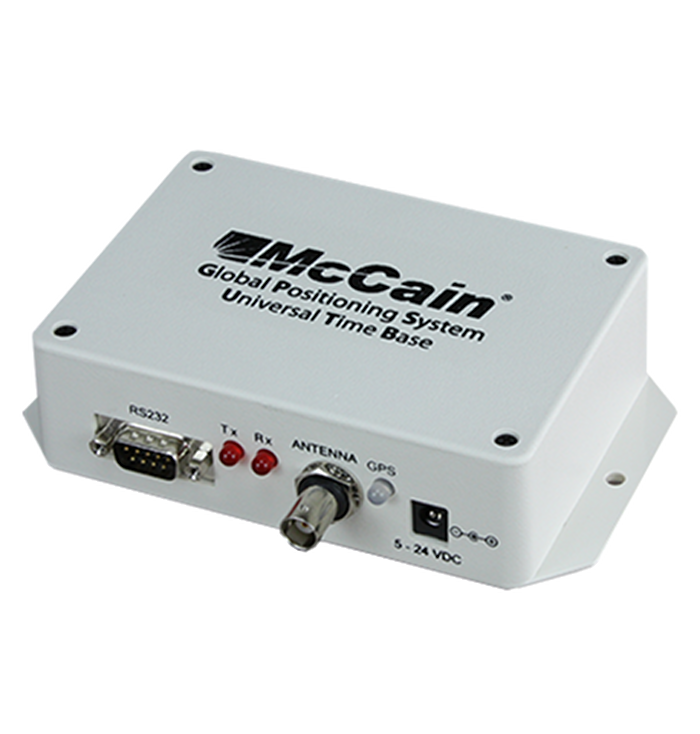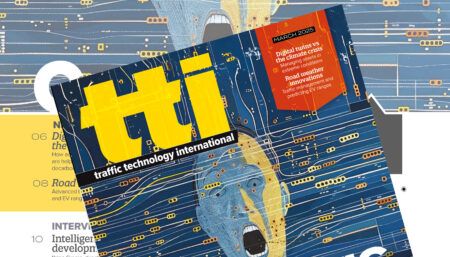One of the USA’s leading developers and manufacturers of advanced traffic control equipment, McCain, is hosting a webinar this week to help transportation agencies minimize the effects of the GPS Week Rollover on their traffic management systems.
Global positioning system (GPS) provides accurate timing information to many critical systems, including traffic management and control equipment. GPS-enabled receivers get date and time with accuracy to the second.
 To do this, standard GPS technology relies on a 10bit transistor chip that allows binary numbers to range from zero (namely binary 0000000000) to 1,023 (binary 1111111111) for a total of 1,024 different combinations.
To do this, standard GPS technology relies on a 10bit transistor chip that allows binary numbers to range from zero (namely binary 0000000000) to 1,023 (binary 1111111111) for a total of 1,024 different combinations.
This range of binary digits is then translated into working weeks in GPS systems, thus the GPS unit can distinguish 1,024 total weeks (19.7 years) within its range of 10 binary digits. GPS ‘week zero’ originally started on January 6, 1980.
The 1,024 weeks counter ran out and rolled over on August 21, 1999. The week counter then reset to zero and has been recounting ever since. The next time the counter will reach week 1,023 and rollover to zero is on April 6, 2019.
GPS receivers, including those installed in traffic signal cabinets, may malfunction because of the GPS Week Rollover. Many state Departments of Transportation (DOTs), county and city agencies rely on GPS units to maintain accurate time in their traffic signal controllers when utility or powerline frequencies drift from their 60Hz cycle.  In other instances, transportation agencies us GPS units to synchronize traffic controllers to a common time base to promote the smooth flow of traffic. The GPS Week Rollover can hamper these coordinated corridors by resetting the day-of-week schedule where holiday timing plans may be in place. The actual time and day of the GPS unit will not be affected, only the week is of concern.
In other instances, transportation agencies us GPS units to synchronize traffic controllers to a common time base to promote the smooth flow of traffic. The GPS Week Rollover can hamper these coordinated corridors by resetting the day-of-week schedule where holiday timing plans may be in place. The actual time and day of the GPS unit will not be affected, only the week is of concern.
McCain is keen to point out that the rollover date for any specific GPS unit depends strictly on the actual manufactured date of the onboard chip of the unit, which is difficult to ascertain and dictates the actual date the rollover will take effect.
The company manufactures two types of GPS modules that are easy-to-use, microprocessor-based universal time base (UTB) devices that provide accurate time-of-day information for traffic signal controllers. The module retrieves time signals from the atomic clocks of the US National Institute of Standards broadcast on the GPS satellite network. The modules then decode the signals and interfaces with the traffic control equipment.
 McCain has identified a software fix to extend the life of its 2070-7G GPS modules, (Part #M45581) and Stand Alone GPS units (Part #M44342) for an additional 1,024 weeks or 19.7 years. A cost-effective tool can be used to install software on these existing GPS devices in approximately 15 minutes.
McCain has identified a software fix to extend the life of its 2070-7G GPS modules, (Part #M45581) and Stand Alone GPS units (Part #M44342) for an additional 1,024 weeks or 19.7 years. A cost-effective tool can be used to install software on these existing GPS devices in approximately 15 minutes.
The company will be hosting a webinar to answer questions on the GPS Week Rollover on Thursday, February 21, at 10am PST. The company will outline the steps transportation agencies can take to minimize the effects of this forthcoming problem and introduce the proposed software fix to correct the issue in some McCain GPS modules.






